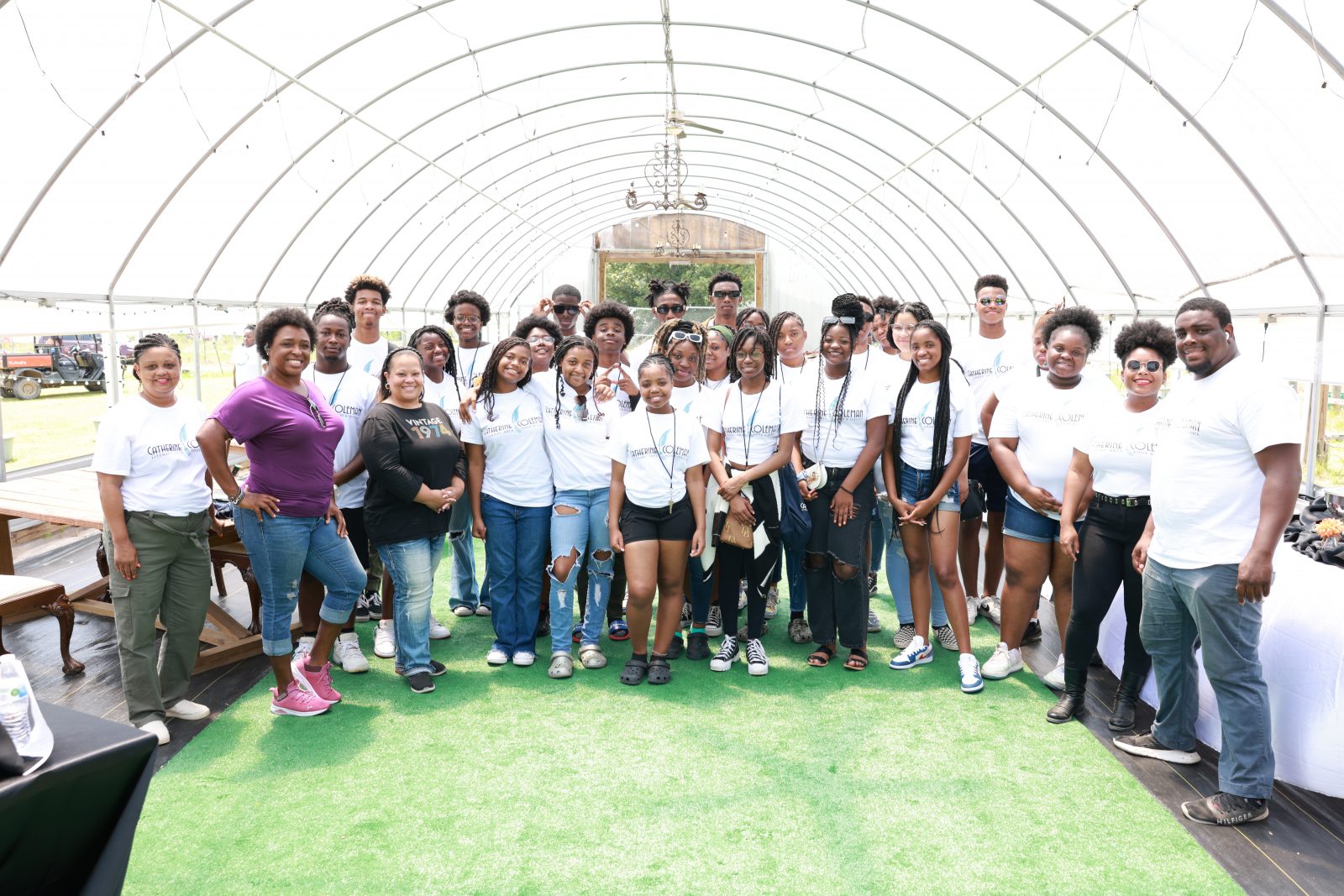By William H. Kelly III
Jackson State University hosted the inaugural Catherine Coleman Literary Arts, Food, and Justice Summer Program in June, offering 25 high school students the opportunity to enhance creative writing skills, create healthier food choices, and explore civil rights justice in Mississippi.
Originally announced as the Catherine Coleman Literary Arts, Food, and Justice Initiative by MacArthur “Genius” Award winner, Kiese Laymon, the initiative serves as an umbrella of programs permanently housed at JSU’s Margaret Walker Center.
“We want to inspire a new generation of young artists and writers in Mississippi through the themes of social justice and food systems change. Our young people benefit so much from these kinds of opportunities, and they get a chance to be in a creative community with one another,” said Robert Luckett, Ph.D., director of the Margaret Walker Center. “We hope to keep this cohort together for next year and grow the number of students we serve.”
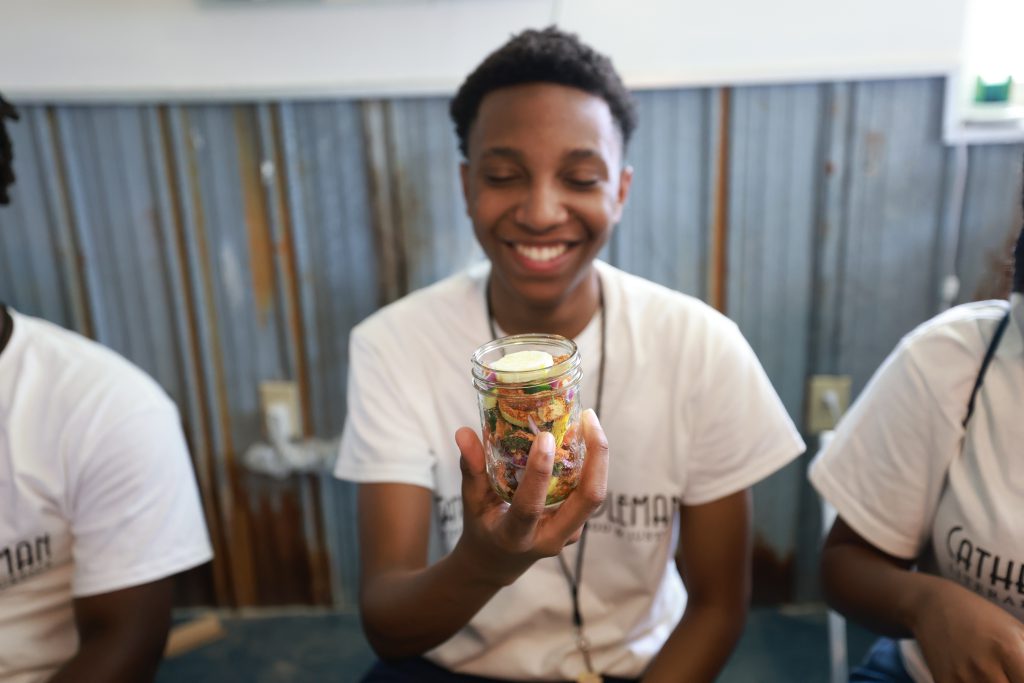
From June 5-9, students from Jackson Public Schools – Murrah, Callaway, Jim Hill, Tougaloo Early College High School – Canton High School, and the Piney Woods School participated in fiction, screenwriting and poetry writing workshops by Maximus Wright, Charlie Braxton, and RaShell Smith-Spears, Ph.D., professor of English in the Department of English, Foreign Languages, and Speech Communication (EFLSC).
Wright is the founder and executive director for the JXN Film Festival, Braxton is a poet, playwright, and music journalist, and Smith-Spears is a fiction writer and poet.
Shanna Smith, Ph.D., and Candice Love Jackson, Ph.D., served as director and assistant director of the program, respectively. Jackson is a visiting associate professor in the Department of EFLSC. Graduate assistants, in the EFLSC department, Victoria Washington and Jeremy McDuffey, also assisted in the efforts to mentor and support the students.
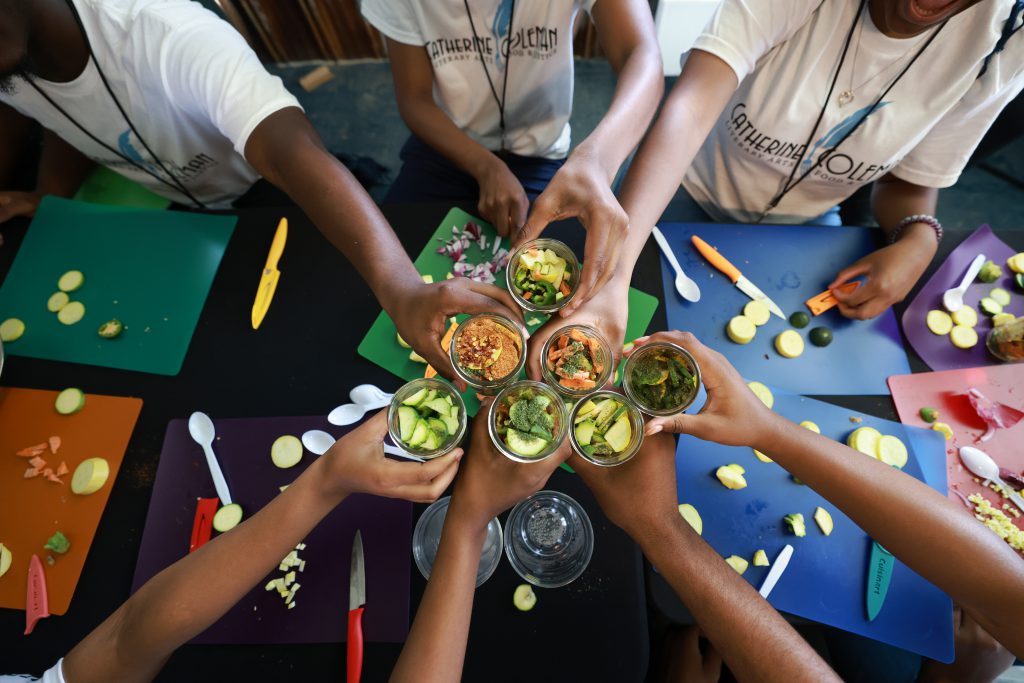
Upon completing the assigned writing workshops in the morning, the young “CCI scholars,” as they called themselves, embarked on excursions such as the Jackson Civil Rights Tour, the Medgar Evers 60th Commemoration at Millsaps College, the 53rd Gibbs-Green Commemoration and Virtual Reality Demonstration at the MWC, and a trip to Foot Print Farms where they learned how to pickle foods by Ms. Ts Sweets and Treats.
“Kiese wanted this so much to be about food and justice, so we knew that the best finale would be right here at Foot Print Farms, where there’s the combination of the two. The students can hear from black farmers about food sustainability, food justice, the history of black farming and the importance of it, all while using the space as creative ground to be able to jog their creative memory,” said Smith, interim assistant chair for the Department of EFLSC.
“I’m impressed with these students. I really am. They surprise us every day with the things they think about, the connections they’ve made this week, the things they’re interested in, and what they want to do and be with their writing,” Smith added.
Laymon was exceptionally proud and pleased with the scholars’ excitement and eagerness to continue to “bless Jackson.”
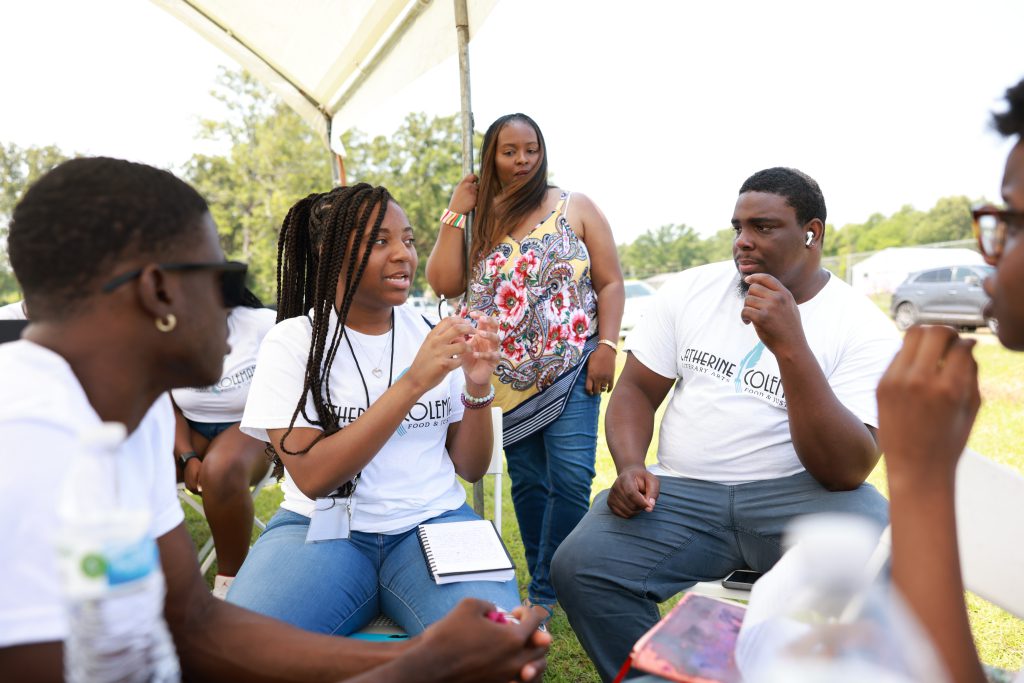
“The only reason I’m able to do anything in this world with my art is that my grandmother gave me a foundation. My mother gave me the discipline, and Jackson State gave me the possibility,” said Laymon at the closing “KIE-note” address. “Once I started selling books and making money, I wanted to create a summer program that I wish we had growing up, and it sounds like it’s gone beyond most of our imaginations,”
Recent Jim Hill graduate, Mentia Trippeter, from Jackson, Mississippi, says the summer institute allowed him to be exposed to things he would have never imagined possible, giving it a “10 out of 10” rating.
“I had no idea it would be this eventful. I’m happy that I was surprised like this because I had the notion it would be just like school, but I have never been so excited to wake up at 6:00 a.m.,” said Trippeter. “It was very eye-opening, and I’m very glad that I decided to do it. There was constant learning, excitement, movement, and collaboration with peers and counselors. I feel like I’ve known these people all of my life now.”
The Mississippi Food Justice Collaborative and the Mississippi Farm to School Network were essential partners in this project.
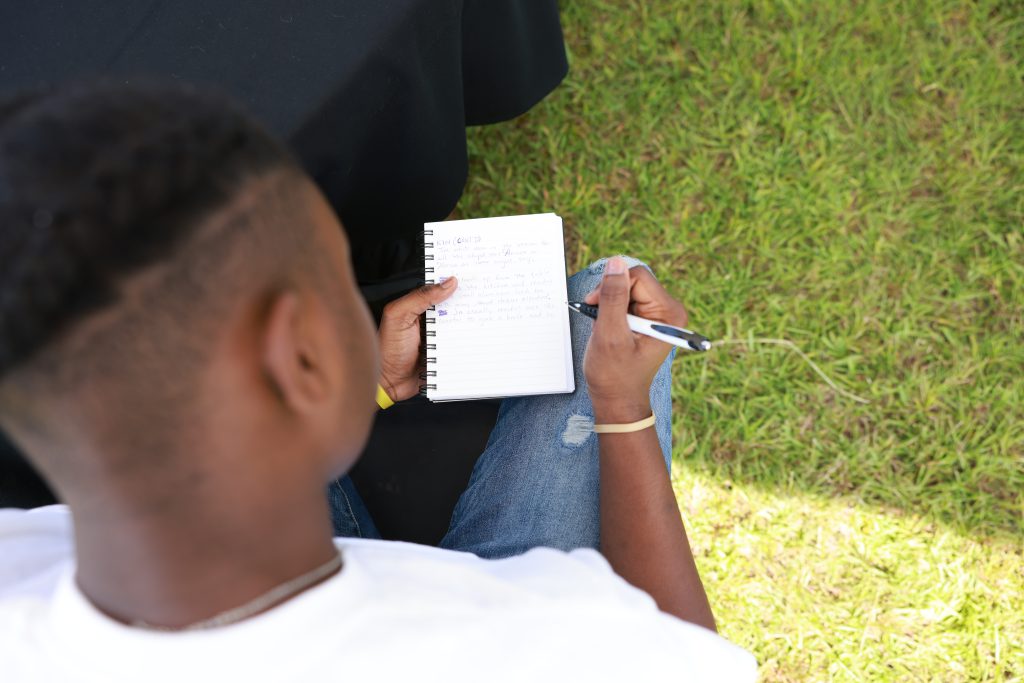
###
Media Contact: William H. Kelly III, William.h.kelly@jsums.edu



